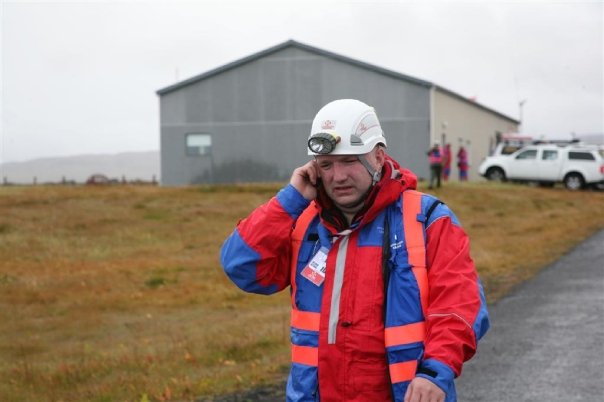Gisli Olafsson knows how to lead in a crisis. He led the first international rescue team to arrive in Haiti after the earthquake in 2010. He has led teams in other world disasters from the floods in Ghana to the Horn of Africa Famine to the Typhoons of Bopha. With over 20 years of experience in disaster management, Gisli is one of the world’s leading experts on the use of technology in a disaster response. He is the Emergency Response Director for NetHope, enabling humanitarian organizations to serve the developing world.
Who better to talk about the subject of leading in a crisis?
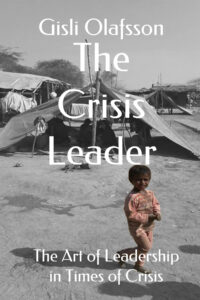 Leading through Difficult Times
Leading through Difficult Times
Gisli, your new book The Crisis Leader is all about leading through difficult times. Your experiences of managing crises are very different than my own. Would you share a few of the more challenging circumstances you’ve faced?
The most challenging circumstance that I encountered was leading the Icelandic Urban Search and Rescue team to Haiti following the devastating earthquake in January 2010. We were the first international team to arrive in the country, and the scenes of our first day will forever be branded in our minds: tens of thousands of bodies lying on the streets being collected into dump-trucks and taken away. Sadly, we would continue to experience scenes of death, despair, and chaos our entire mission there.
As a team leader during the next two weeks, it became all about me ensuring that the team could perform at their maximum level, even though they had just witnessed the most terrifying experience of their life. Keeping morale high, watching out for signs of stress, and encouraging them to give their best in order to save lives was all I did, 20-22 hours per day.
These and other disasters I have responded to taught me lessons about leadership, lessons that I discovered were not just unique to the world of disaster response but were in fact applicable to any organization or company dealing with a crisis.
Leadership vs. Crisis Leadership
You have seen some tragic events. I cannot imagine how you felt. What’s your definition of leadership? Is crisis leadership different? Does it require a different approach?
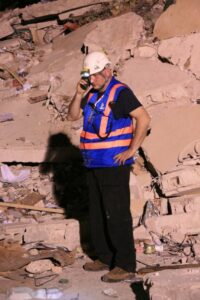
Leadership is about getting people to do the things you want them to do, without necessarily having the authority to tell them to do these things. Leadership is about sharing a vision of a future state and influencing others to help you reach that state. Leadership is about focusing on that future vision instead of the past, while leveraging the lessons of the past to ensure you do not make the same mistakes while trying to reach that future vision.
Crisis leadership takes all of this to a higher level. There is so much more at stake. In my world it may make the difference between life and death. For other crisis leaders, it may mean the difference between the company surviving or going bankrupt.
Rudy Giuliani phrased it well when he said, “It is in times of crisis that good leaders emerge.” It is at these times that you see who the true leaders are, which ones can take the pressure and which ones can really get people rallied around a common vision forward, instead of giving in to the despair that is all around.
Is there one characteristic that is a must-have for a crisis leader?
In my book I mention a few characteristics that a crisis leader needs to develop. But if you ask me to pick one must-have characteristic, then in my mind it is humility: not letting the fact that everyone is looking at you for answers rise to your head; not forgetting that you yourself are human and that you have to ensure you watch out for your own physical and mental state; knowing that you are not indispensable and that you need to have others that can take over; not being afraid of empowering others to do the tasks because you don’t need to do everything yourself.
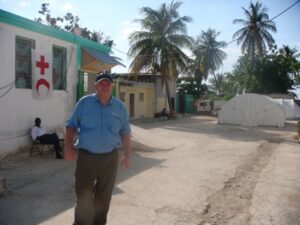
At one point in the book, you discuss the importance of preparing the family. All parts of our lives are affected by other parts. We benefit at work when we prepare at home and vice versa. Why is preparing the family so important?
If your mind is not able to fully focus on the challenging tasks ahead of you because you are worrying about how things are at home – then that will quickly render you helpless. Your worries about things at home will allow your mind to give in to the notion of, “What am I really doing here? This is a lost cause. I should rather take care of my own family than worry about others”.
I have always said that behind every great leader there is an even greater spouse at home. A spouse that is willing to take on a double workload at a moment’s notice and keep things running at home. In order to get to that stage, you need to prepare your family for the fact that you may have to respond to a crisis on a short notice. You have to ensure that they have access to all the relevant things that may need to be done while you are away.
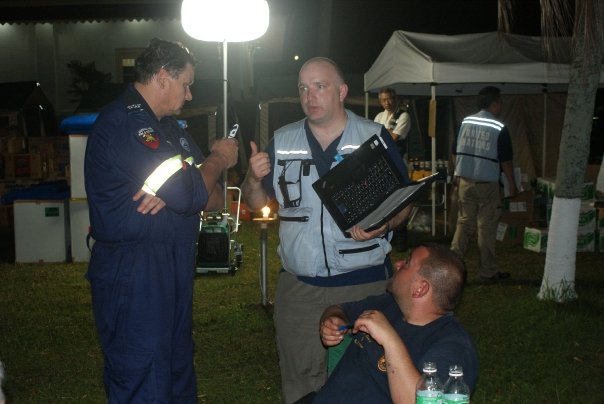
It is also important for them to get regular news from you, whether it is direct through a phone call from you or by having a mutual friend or colleague give them regular updates about what you are doing. When we were in Haiti, ICE-SAR, the Icelandic Search And Rescue Association, which we deployed for made sure to keep all family members updated many times per day via email about our progress. For my team members, knowing that their families were being kept informed meant that they could focus on the difficult tasks they were faced with.
I love what you write about leadership and titles. Talk about why a title is not necessarily relevant when talking about a leader.
I always joke that this concept of disregarding titles comes from my Icelandic heritage. Being such a small country (320,000 inhabitants) means that we don’t really care about titles. But the truth is that we can all be leaders regardless of our titles. The customer service agent that makes a customer happy is a leader. A citizen that helps another fellow citizen is a leader. Some of the best leaders I have worked with in the most challenging environments were not the ones with the formal title. They were the ones that did the right thing, worked towards the common good, and connected people and organizations required to get things done.
As a leader who has a title, it is important to understand that it is people like that who get things done. It is important to empower those leaders without titles so that they are able to continue their work. It is important to understand that those are your most valuable team members, not your competition for a title.
For anyone still in doubt that leaders don’t need titles, I encourage them to read one of my favorite fables on the subject, Robin Sharma’s The Leader Who Had No Title.
Best Practices in a Crisis
You also talk about the need to be calm. What are the best practices that help prepare a leader for a crisis?
Your question really frames the response. Your ability to keep calm during a crisis is all about preparation. You need to know yourself very well and understand how you react to various stimuli. You need to be able to separate the task at hand from your own feelings, especially your own fears. Being able to do this requires hard work.
One of the best ways that I know is through exercises. These can be anything from simple what-if mental exercises you do on your own as you are driving back and forth from work, or they can be team/organizational exercises where you go through a particular scenario, make decisions under pressure and then analyze your responses afterwards.
The better you prepare yourself and your organization for dealing with crisis, the more resilient you and your team will become. Sadly, many people are not willing to make the effort of preparing and pay for it during crisis. In my world of disaster response, renowned economists did a study for the World Bank that showed that every dollar spent on disaster preparedness saves six dollars in response. It would not surprise me that every hour spent on personal and organizational crisis preparedness saves six hours in response. So just imagine what the difference six hours can have in the crisis you may face, and you have your reason for spending that one hour on preparing for it.
